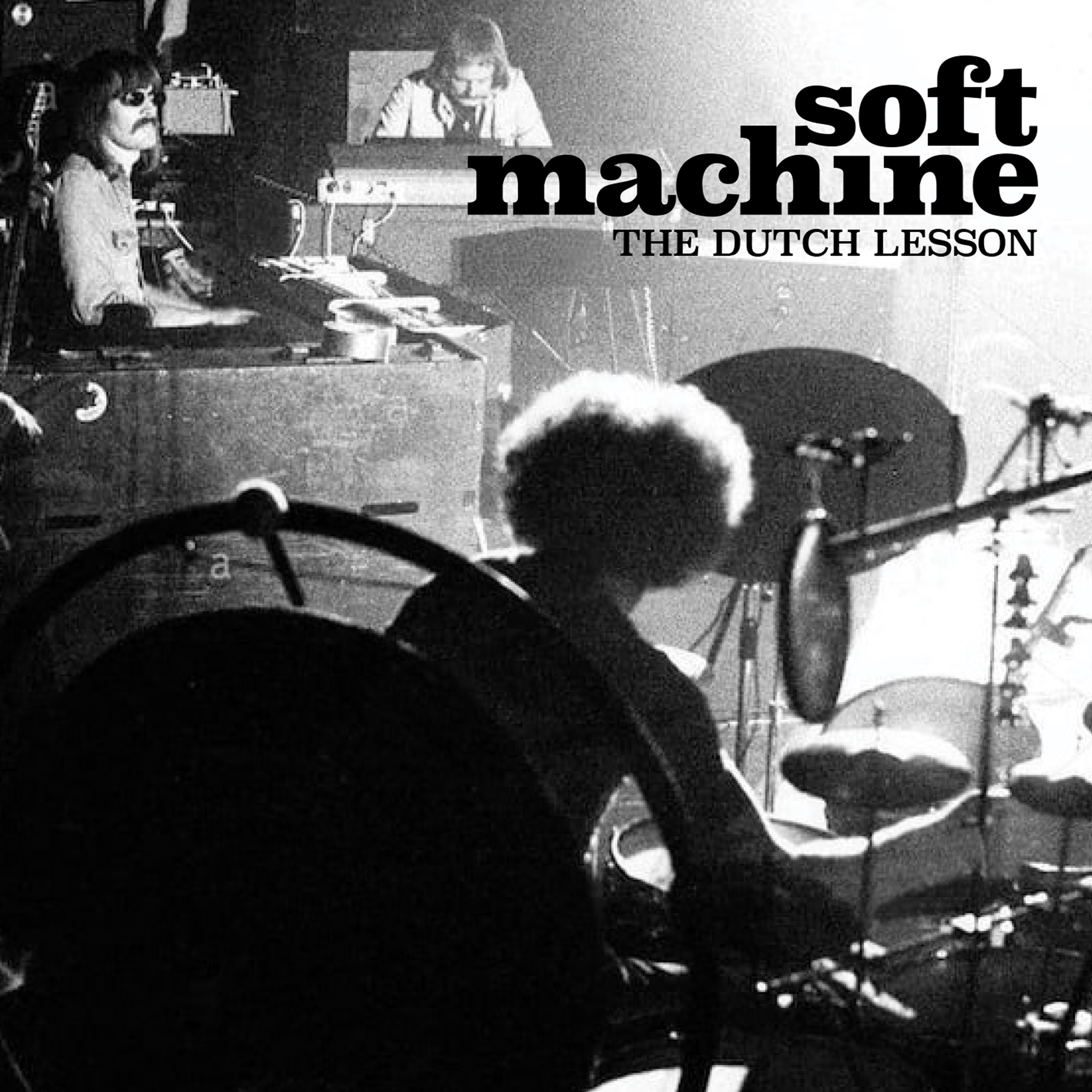By 1973 Soft Machine already had a long history of playing in Rotterdam, appearing at major festivals such as Hippy Hippy Fair (1967), Kralingen (1970) and AHOY (1971, Phil Howard’s debut), and no less than four times at the city’s most prestigious venue, De Doelen, most recently (in September 1972) on a double bill with Robert Wyatt’s Matching Mole. This time, however, they were booked in a smaller venue, which they filled to capacity at around 400. Part of an arts complex originally known as Ons Huis, De Lantaren had recently been renovated into a theatre and music venue.
In attendance that October night was Bert Boogaard, a record store owner at the time, sitting in the front row with a Uher portable tape machine, and we have him to thank for this excellent ambient recording of the performance, only marred by occasional saturation in the drums. But Boogaard can be excused for not anticipating how powerful and loud John Marshall’s playing would be. This recording contains some of his most unashamedly “rock” drumming, likely egged on by Roy Babbington’s frequent use of a fuzz pedal on his bass, a long-time Soft Machine signature.
The band as a whole is a real powerhouse, nowhere better exemplified than on the encore, an infectiously funky fuzz organ-led jam based on the “Gesolreut” riff. Generally the tempos are much faster than usual, making the originals feel leisurely in comparison (“371⁄2” is a case in point), and even when they aren’t, as with “The Soft Weed Factor,” an unexpected switch to double time makes up for it.
Within a couple of weeks of this Dutch mini-tour (a double-bill with local Canterbury disciples Supersister at Amsterdam’s Concertgebouw, at the time featuring Marshall’s future Colours bandmate Charlie Mariano on sax, followed the next day), Soft Machine would enter a new phase of its history when, initially for a one-off Musicians’ Union workshop, the quartet teamed up with guitarist Allan Holdsworth (like Marshall, Jenkins and Babbington formerly of Nucleus, although only the latter was still a member when he joined it), a successful experiment repeated on two dates in Ireland before Holdsworth was made a full member in time for the band’s Christmas Party at the Roundhouse.
Expanding the line-up to a quintet was to prove what had been needed to propel Soft Machine and its music to the next level. The amount of overdubbing on Seven, itself evidence that something was missing in the band as it was, probably accounted for the resulting material not working in a live context with just four people. But although the fifth man would change several times in the interim, the quartet of Mike Ratledge, Karl Jenkins, Roy Babbington and John Marshall would remain in place for nearly three years, until Ratledge’s departure in April 1976—a very long time by Soft Machine’s standards, and a sure sign of shared musical affinity.
The Dutch Lesson Track Listing:
Disc One
1. Stanley Stamps Gibbon Album (Ratledge) 7:16
2. Between (Jenkins/Ratledge) 2:12
3. The Soft Weed Factor (Jenkins) 11:05
4. Lefty (Soft Machine) 1:58
5. Gesolreut (Ratledge) 9:30
6. EPV (Jenkins) 4:33
7. Down The Road (Jenkins) 10:40
8. Ealing Comedy (Babbington) 5:33
9. 37 1/2 (Ratledge) 7:17
10. J.S.M. (Marshall) 4:39
11. Riff II (Jenkins) :41
Disc Two
1. Chloe and the Pirates (Ratledge) 9:57
2. Hazard Profile (Jenkins) 13:56
3. Improvisation (Soft Machine) 5:20
4. Gesolreut Jam (Ratledge) 7:41







